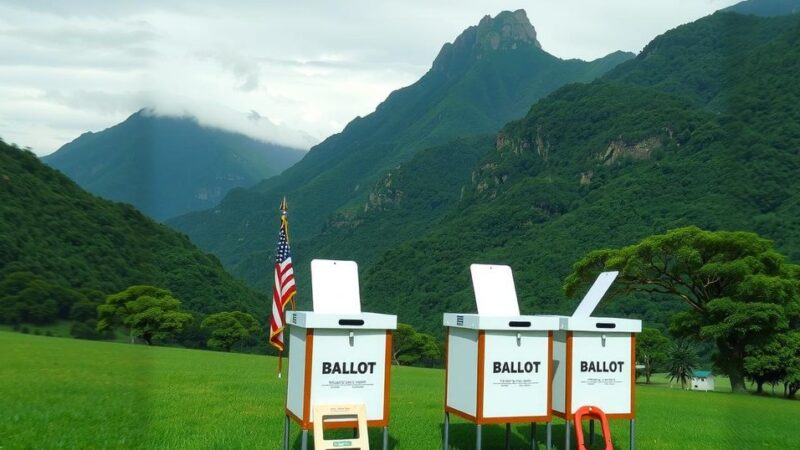The Trump administration has expelled South Africa’s Ambassador Ebrahim Rasool, labeling him a “race-baiting politician” in response to his critical comments about President Trump. This diplomatic incident follows Rasool’s recent arrival in Washington and marks a deterioration in U.S.-South African relations. Analysts express concerns over severe economic implications if relations are not mended, urging for constructive dialogue and acknowledgment of the importance of bilateral ties.
The Trump administration expelled South Africa’s Ambassador Ebrahim Rasool on March 17, granting him 72 hours to exit the United States. Secretary of State Marco Rubio described Rasool as a “race-baiting politician who hates America” and President Trump. The Department of State issued a formal notice confirming that Rasool was no longer recognized as part of the South African mission, instituting his status as persona non grata.
This expulsion followed Rasool’s criticism of President Trump, during a recent webinar, in which he labeled Trump’s policies as a “white supremacist response” to the increasing demographic diversity in America. Rasool had only recently taken office, just two months prior to the incident.
In response to the situation, South African President Cyril Ramaphosa emphasized the importance of U.S. relations, citing the country as South Africa’s second-largest trading partner. He expressed awareness of the U.S. displeasure regarding Rasool’s statements and anticipated a complete report from Rasool upon his return to South Africa.
The expulsion marks a continuing trend of strained diplomatic relations between the United States and South Africa since President Trump began his second term. South Africa’s Foreign Minister described the U.S. decision to expel Rasool as “unprecedented and regrettable,” suggesting the need for closed-door discussions to address mutual concerns instead of public disputes.
Rasool’s appointment had been controversial before his arrival in Washington, dividing opinions within the ruling African National Congress (ANC) and its coalition partners. Political analyst William Gumede indicated that Rasool’s perceived pro-Iran and anti-Israel stance contributed to opposition against his appointment, which was a significant point of contention within the new Government of National Unity.
Rasool has a history of endorsing Hamas and criticizing Israel, notably supporting South Africa’s accusations of genocide against Israel at international forums. Gumede urged President Ramaphosa to publicly denounce Rasool’s comments while recognizing the importance of U.S. relations, warning that failure to do so might lead to targeted economic sanctions against South Africa, jeopardizing hundreds of thousands of jobs.
In conclusion, the expulsion of Ambassador Rasool highlights ongoing diplomatic tensions between South Africa and the United States. As the implications of strained relations could be considerable for South Africa’s economy, analysts stress the need for constructive dialogue and an acknowledgment of the necessity for strong bilateral ties moving forward.
The situation illustrates the delicate balance of diplomatic relations, particularly given the economic ramifications that could arise from continued discontent between the two nations.
The expulsion of Ambassador Ebrahim Rasool by the Trump administration signifies escalating tensions between South Africa and the United States. The incident has raised concerns about the potential economic impact on South Africa, emphasizing the need for improved diplomatic communication. Moving forward, it is essential for South African leadership to address the situation and strengthen U.S. relations to avoid further complications.
Original Source: www.cbsnews.com






